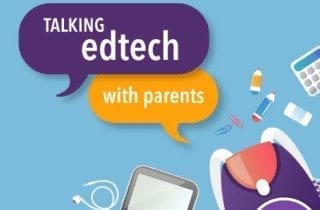The current crisis has highlighted the disparity between students with and without equitable access to technology, especially in rural schools. While most teachers are being asked to take their lessons directly to the students’ homes, many administrators know that the challenges in their district go beyond whether or not students have enough devices to do their classwork. During CoSN and ClassLink’s edWebinar, “Leading Digital Transformations in Rural School Districts,” the presenters talked about how the COVID-19 situation amplifies the obstacles rural schools face transitioning to a 21st century learning environment.
At Common Sense Education, the edtech reviewers have seen it all. And to help teachers navigate the plethora of materials for the digital classroom, Tanner Higgin, Director of Education Editorial Strategy at Common Sense Education, presented “50 Top Edtech Tools for the Classroom.” Below are some of Higgin’s favorites.
Despite universal concerns about student data privacy, communicating school policies can quickly overwhelm school leaders. CoSN has stepped in with guidance for superintendents and principals to help them with several aspects of student data privacy, including best practices for informing the community. In their edWebinar “Assuring Student Data Privacy: Lessons for Our Times,” presenters offered insights into how school leaders can take charge of communications for this critical issue.
In this edWebinar you’ll learn about tools that will help you understand where your students are and how best to support them.
Adoptions, non-adoptions, civics, SEL, career-ready education, and the possible recession. According to Kathy Mickey, Senior Analyst of Simba Information, all of these could impact the instructional materials marker. In her recent presentation “K-12 Instructional Materials: What’s New in 2019,” she previewed results from Simba’s Publishing for the PreK-12 Market, 2019-2020, and talked about how digital is changing—and not changing—the landscape.
Assistive technology teachers working at schools in the Fairfax County, VA school district, one of the largest in the United States, are finding that the use of audiobooks is improving access to grade-level content while also developing the love of reading that motivates many students to continue improving.
Learn how states, districts, and schools are leveraging technology to offer greater standards consistency in the curriculum development process.
A variety of online tools embedded in popular Microsoft programs and apps are now helping English Learners with reading, writing, and classroom conversations. And, these same tools are also enabling parent-teacher conferences to become bilingual or even multilingual.
In this edWebinar, three educators will share their strategies for engaging parents in a different conversation by showing how they use technology to open up a world of opportunities that wouldn’t be possible without digital tools.
Join this expert panel as they discuss successful E-Rate Fiber Special Construction applications and boots on the ground implementation of fiber WANs.











